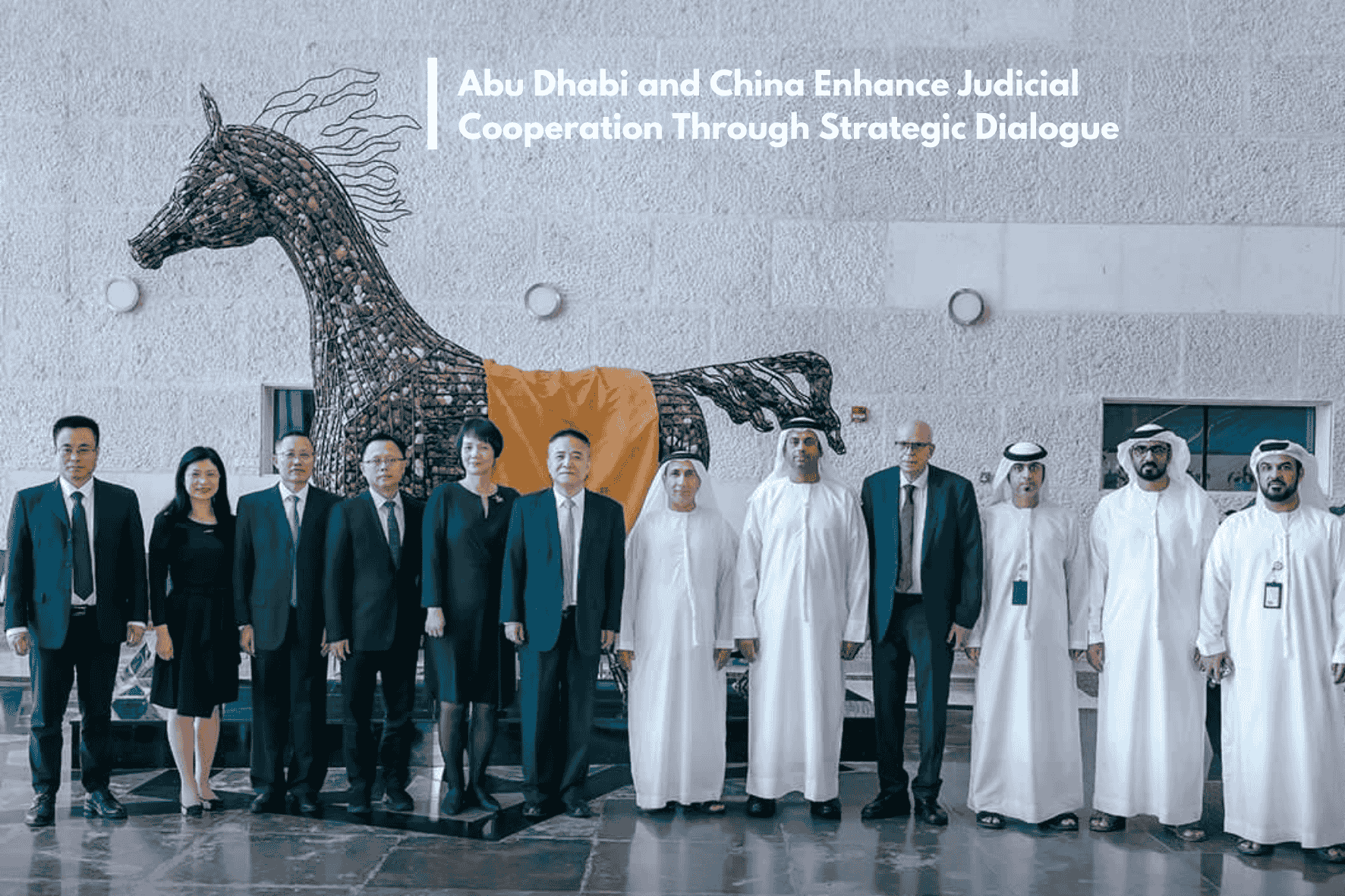UAE Intercepts Illegal Arms Transfer to Sudanese Armed Forces

The United Arab Emirates’ security forces have successfully intercepted a major attempt to illegally transfer weapons and military equipment to the Sudanese Armed Forces (SAF). The operation, which was conducted with careful precision, has uncovered a complex network involved in unauthorized arms trafficking. This network, orchestrated by a group of individuals linked to Sudanese military leaders, was intercepted by the UAE authorities following a comprehensive investigation.
Dr. Hamad Saif Al Shamsi, the UAE’s Attorney-General, confirmed the foiled attempt on Wednesday, detailing the success of the operation in preventing the shipment of significant military equipment. The authorities arrested members of a cell engaged in illegal brokering and trafficking of military supplies to Sudanese forces without the necessary licenses or authorization.
Security Forces’ Successful Interception
The UAE security forces’ operation was triggered by a routine inspection at one of the country’s airports, where a private aircraft was undergoing standard checks. During the inspection, authorities discovered nearly five million rounds of 7.54 x 62 mm Goryunov-type ammunition concealed aboard the aircraft. The plane, which had initially declared its cargo as medical supplies, was caught transporting military-grade ammunition, indicating the scale and sophistication of the illegal operation.
The investigation further revealed that the shipment was only one part of a larger, multi-faceted arms deal. The authorities not only intercepted the weapons but also seized part of the financial proceeds from the deal. These proceeds were found in the possession of two suspects, who were arrested in their hotel rooms.
Key Figures Involved in the Operation
The investigation into the illegal arms trafficking network revealed the involvement of high-ranking Sudanese military officials. Among those implicated were Salah Gosh, the former head of Sudan’s intelligence services, along with other senior figures such as a former intelligence officer, a former advisor to Sudan’s finance minister, and key political figures closely tied to General Abdel Fattah Al-Burhan and his deputy, Yasser Al-Atta.
Several Sudanese businessmen, both in Sudan and abroad, were also found to be involved in this illicit activity. These individuals helped facilitate the illegal arms transactions, ensuring that the weapons and ammunition were delivered from Sudan to an importing company based in the UAE.
The Role of the HAWALADARS Method
The investigation into the weapons trafficking operation revealed that the illegal arms deal was conducted using a method known as “HAWALADARS.” This is a traditional method used to transfer funds across borders, often circumventing official financial systems. In this case, the method was used to route payments for military equipment, including Kalashnikov rifles, machine guns, grenades, and ammunition, which were meant to be delivered to Sudanese forces.
The weapons were transported via a company owned by one of the fugitives involved in the trafficking operation, a man who had worked for the Sudanese military. This company was reportedly coordinated with Colonel Othman Al-Zubair, the Sudanese military’s financial operations chief, to facilitate the illegal transactions. Fake contracts and commercial invoices were employed to cover up the true nature of the shipments, falsely labeling the cargo as part of a sugar import deal.
Investigation’s Key Findings
According to the UAE’s Attorney-General, the investigation revealed that these illegal arms deals were being carried out at the direct request of Sudan’s Armament Committee, which is chaired by General Al-Burhan and his deputy, Al-Atta. The committee is responsible for overseeing the Sudanese military’s procurement activities, and it had full knowledge of the illicit shipments. The cell members responsible for facilitating the transactions were appointed by Ahmed Rabie Ahmed Al-Sayed, a well-known political figure with close ties to Sudan’s military leadership. Al-Sayed was reportedly in charge of issuing end-user certificates and approvals for the deals.
The investigation also found that Salah Gosh, the former head of Sudan’s intelligence services, played a pivotal role in managing the illegal trafficking of military equipment from Sudan to the UAE. Gosh worked in close coordination with other key members of the cell to ensure that the weapons and military supplies were delivered to the right channels. The traffickers profited by $2.6 million above the actual value of the deals, with the money distributed among themselves and several accomplices. Notably, a portion of Gosh’s share was discovered in the possession of Khalid Youssef Mukhtar Youssef, a former intelligence officer and Gosh’s ex-chief of staff.
Seized Shipment and Evidence
The intercepted shipment, which arrived in the UAE aboard a private aircraft, had come from a foreign country. Upon landing at the airport for refueling, the aircraft falsely declared its cargo as medical supplies. However, upon inspection, the UAE authorities uncovered the military-grade ammunition, along with a range of forged documents, including shipping papers and contracts related to the illegal deals.
In addition to the weapons and financial proceeds, authorities also discovered audio recordings and messages exchanged between members of the trafficking cell. These messages revealed the inner workings of the operation, including discussions about the illegal payments and logistics.
Companies Involved in the Trafficking Network
Further investigation by the UAE authorities uncovered several companies that had been involved in the illegal arms trafficking operation. Among them was a Sudanese-Ukrainian businessman who owned multiple companies, one of which operated within the UAE. These companies were implicated in providing weapons, ammunition, drones, and grenades to Sudanese forces in collaboration with the trafficking cell.
One of the companies involved was listed under US sanctions, raising further concerns about the scale of the illicit arms trade. The continued involvement of these businesses in illegal activities suggests a deeper financial interest in perpetuating Sudan’s ongoing internal conflict.
Financial Motivations and Connections to Sudan’s Conflict
The investigation revealed that the financial interests tied to this illegal arms operation were not only driven by personal profit but also by a vested interest in maintaining the ongoing conflict in Sudan. The trafficking network, which operated within the UAE, had a direct financial stake in the continuation of the civil war in Sudan, as it stood to benefit from the continued need for arms and ammunition.
The UAE authorities have emphasized that this incident represents a serious breach of the country’s national security. The operation effectively turned the UAE into a platform for the illegal transfer of weapons to a nation in the midst of civil strife. This trafficking network not only undermines international peace efforts but also constitutes a criminal offense that is punishable under UAE law.
Legal and Political Implications
Dr. Al Shamsi, the UAE Attorney-General, highlighted the grave implications of this incident, stressing that the involvement of high-ranking Sudanese military leaders and businessmen in the illegal trafficking of weapons posed a direct threat to the UAE’s security and stability. The authorities have vowed to continue their investigation and have emphasized that the suspects will be brought to trial.
The Public Prosecution is preparing to refer the suspects to urgent trial proceedings, and the investigation is ongoing. The UAE authorities have committed to ensuring that all involved in the trafficking operation face the full extent of the law. The final results of the investigation will be disclosed once all proceedings have been completed.








1 Comment
[…] yet deeply meaningful moment when U2 frontman Bono made a remarkable appearance alongside the Ukrainian military. This special event was the brainchild of renowned American actor and director Sean Penn, who […]
Comments are closed.